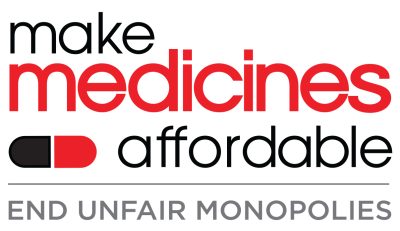March 2022 marked the beginning of the third year of the COVID-19 pandemic. The status quo hasn’t changed: as pharmaceutical and diagnostics corporations reap enormous profits and rich countries stockpile COVID-19 vaccines and treatment, low-and middle-income countries are still struggling to vaccinate their people, offer testing and provide treatment. We will continue to bear witness to massive inequality and the failure of global governance – and their deadly consequences – unless the system changes.

Initiatives such as COVAX were doomed to fail, since they relied on the goodwill of pharmaceutical corporations rather than equality and public health. We need equitable access to life-saving vaccines, tests and treatment for COVID-19. The failure and unwillingness to make vaccines available everywhere, to everyone who needs them is especially outrageous, given that their development was both underwritten and de-risked using public funding. The production capacity of developed countries – who continue to make billions from the pandemic – cannot meet global demand. The continuing and entrenched refusal to suspend or end intellectual property protection on COVID-19 vaccines, diagnostics and treatment – and ensure technology transfer to enable local production and global access – is prolonging the pandemic.
The current profit-over-lives system needs to be changed – but progress is not coming fast enough. Millions of people have lost their lives to COVID-19 while conversations about a TRIPS waiver stalled. Although the World Trade Organization is finally headed towards a decision on the TRIPS waiver, it is unlikely to fully address the global need for vaccines, diagnostics and treatment now – or when new pandemics threaten our future existence.
As the world enters its third pandemic year, civil society organizations need to continue – and increase- pressure for significant change, rather than trying to work around a system that prioritizes profits over lives. As an example, Pfizer, which generated $37 billion in revenue from its COVID-19 vaccine in 2021, expects $100 billion in revenues from the vaccine and COVID-19 antiviral, paxlovid, in 2022. Merck’s molnupiravir, the first oral medication to be included in WHO guidelines for COVID-19 treatment, is being sold in the US for 700 USD per course of treatment, while its real costs are estimated at around 20 USD.
Pfizer and Merck have chosen to designate a select few generic manufacturers able to produce cheaper versions of their drugs, through the Medicines Patent Pool (MPP). But even with these deals in place, they remain firmly in control, and access to generic versions are within reach of only half the world’s population.
What we have seen with COVID-19 is a new version of an old story – as with HIV, before affordable generic antiretroviral treatment became available, millions of people died so that pharmaceutical profits could be preserved. But we’ve learned that it is possible for medical technologies – especially those developed with public funding – can become available to everyone who needs them, and we must continue to fight.
MMA team.




